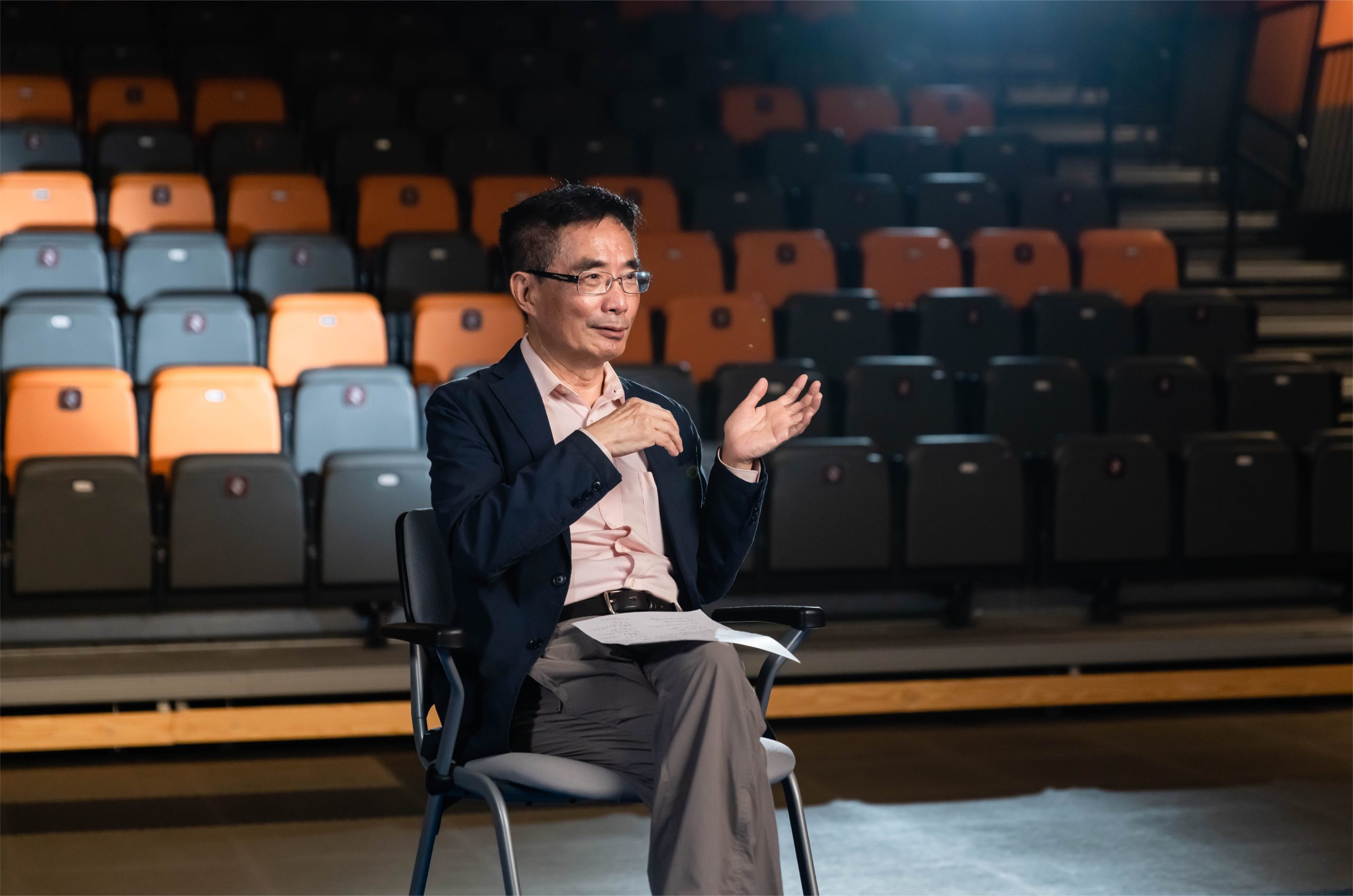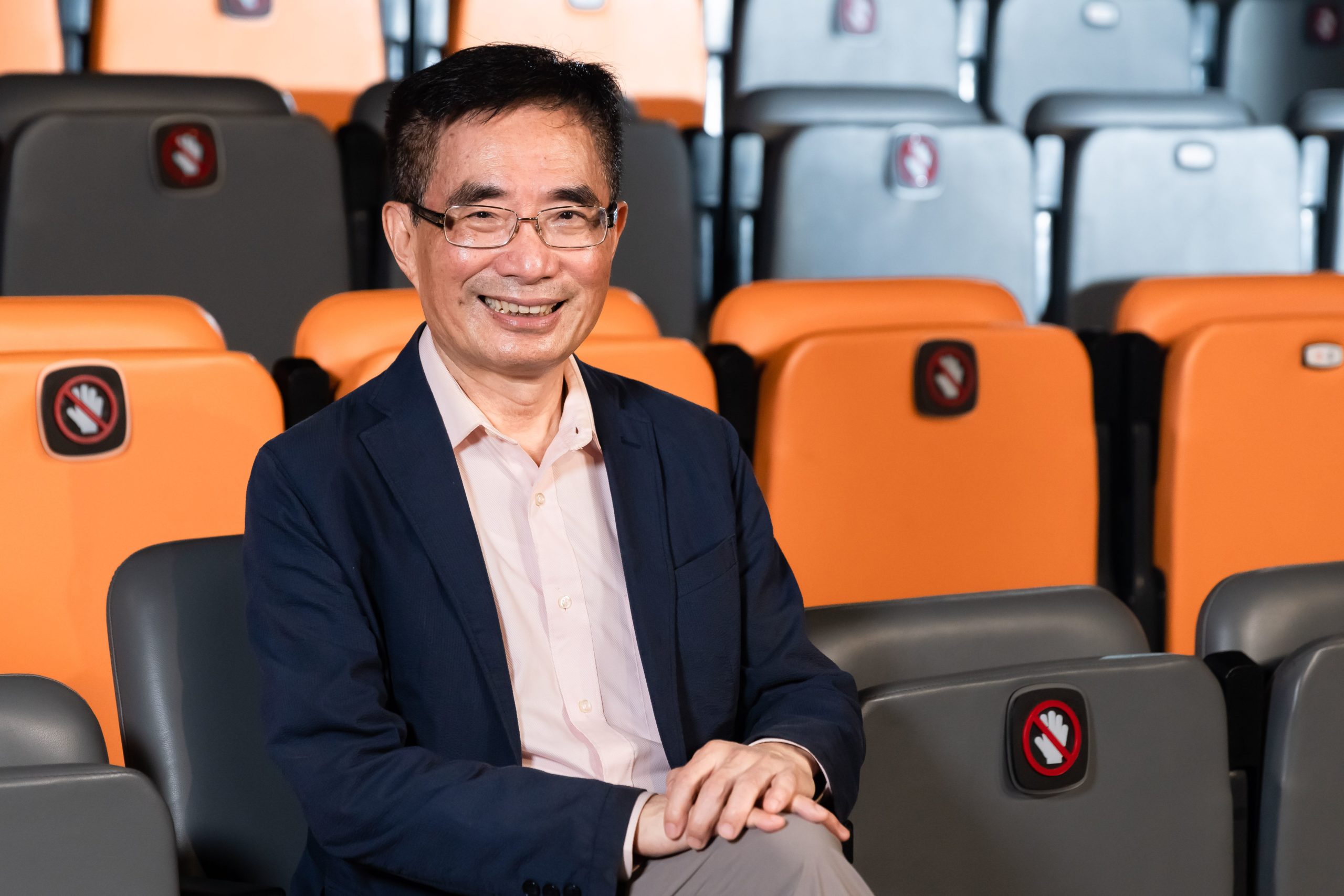Professor Danny WONG, Chairman of Hong Kong Shue Yan University Council, said in an exclusive interview with Shue Yan Newsletter that on the occasion of Shue Yan University’s 50th anniversary, it was the correct choice for the university to develop a strategic development plan which incorporated the characteristics of the digital age. He then said that looking back at the original intention and philosophy of President Dr. HU Hung Lick and Principal Dr. CHUNG Chi Yung in running the university and reviewing the development of Hong Kong higher education, people could see that Shue Yan was actually leading the development of Hong Kong’s higher education.
Professor WONG said that society had entered the digital age, and information technology and digital technology continued to develop. And in recent years, Shue Yan had added big data laboratories and other facilities, allowing school management and departments to add more technology-related elements when they were conceiving new programmes and improving the contents of the existing programmes.
He pointed out that Shue Yan offered quite a few quality programmes, such as programmes in humanities and social science programmes, including Journalism and Communication, Social Work, Counselling & Psychology and others. The university should continue to improve the quality of its programmes so that even without government funding, the programmes of Shue Yan could be comparable to those of government-funded universities.
Prior to his retirement, Professor WONG was Vice President (Academic) of the Open University of Hong Kong (now the Hong Kong Metropolitan University). He is also an expert in business administration and quality assurance. He believes that Shue Yan should continue to make use of its advantages as a private university and its small-scale features to establish its own characteristics. For example, Shue Yan need not wait for government decisions and grants to meet the talent needs of the society and implement new projects, therefore it can act quickly. For another example, the small scale of Shue Yan encourages rapport between teachers and students, and there can be better communication and cooperation among academic departments.
Adhering to the motto
While talking about Shue Yan’s education philosophy, Professor WONG said that President HU and Principal CHUNG took “Cultivating virtues of benevolence; broadening horizon and knowledge” as the school motto when Shue Yan was founded. And today, it seems that this educational philosophy is even more important because many young people are self-centred and do not know how to get along with others. It would be difficult for them to integrate into the workplace after graduation. Shue Yan aimed at cultivating students to be both benevolent and moral, with the quality of “Junz” (君子) as this quality is very important for the growth of young people. “‘Cultivating virtues of benevolence’ refers to the thought that students should learn how to discipline themselves, be respectful, honest and generous before they learn a wide range of academic knowledge. Only by learning how to treat others and deal with things can we have a better future.”
With regard to “broadening horizon and knowledge”, Professor WONG believed that a new meaning should be added, namely, students need to know how to make use of technology and be equipped with interdisciplinary knowledge. For example, even students majoring in Chinese literature need to learn to utilise technology to explore materials and conduct research. “Academic boundaries are no longer as clear as before when liberal arts, science, engineering and business were distinguishably separated. Nowadays, business can have academic exchanges with liberal arts, and social science can also be integrated with natural science. Students can no longer be satisfied with only the knowledge of one subject.”

Interact with President HU
Professor WONG became a member of the university council in 2011, then the vice-Chairman, and finally Chairman; but his connection with Shue Yan can be dated back to the 1990s. At that time, Professor WONG was a representative of the Association of International Accountants in Hong Kong and was responsible for handling examinations held by the Association in Hong Kong and making exemption arrangements for accounting graduates from the examinations of the Association. Around 1992 and 1993, he and his colleagues visited Shue Yan to find out the design and content of its accounting programme so as to determine what exemptions Shue Yan graduates could receive. President HU met him in person the day he visited Shue Yan.
“I remember that at that time, President HU invited us to have lunch in a cha chaan teng (Hong Kong style tea house) at the corner of Wai Tsui Crescent. We later informed Shue Yan that its graduates could be exempted from some examinations, but President HU kept negotiating with us, exchanging letters and documents with us many times. Finally, we considered that Shue Yan met the requirements regarding its quality management and other aspects and granted Shue Yan the same exemption arrangements as what other universities received,” said Professor WONG.
After that, Professor WONG was appointed as a member of the Hong Kong Council for Academic Accreditation (currently known as the Hong Kong Council for Accreditation of Academic and Vocational Qualifications). During the period 1996-1997, Professor WONG met President HU from time to time in social and academic functions and they talked about the future development of Shue Yan. When Professor WONG visited Shue Yan later, he was introduced by President HU to Principal CHUNG Chi Yung and Dr. HU Fai Chung. Soon after, President HU and Principal CHUNG agreed to seek accreditation, and Shue Yan was approved by the government to be renamed as a university in December 2006.
He said, “In my interactions with President HU and Principal CHUNG, I felt that both of them loved their work very much and believed that they were doing the right thing. Some outsiders might not agree with what they were doing, but they had their own reasons and stood up for what they believed in. During the process, I developed an unexpected respect for them and a desire to work with them.”
Shue Yan’s contribution to higher education
Looking back at the journey that Shue Yan had taken, what impressed Professor WONG the most was that President HU and Principal CHUNG had foreseen 3 directions for the development of tertiary education 50 years ago. They took the first step and then persevered through all the difficulties and stuck to their path. The 3 directions were: (1) establishing Shue Yan to increase the number of tertiary education places and provide higher education opportunities to young people who wanted to study; (2) insisting on the four-year university system and refusing to change from four-year to three-year even though no government funding would be received; (3) persisting in private education and self-renewal, being a forerunner of today’s self-funded institutions.
“Looking at higher education in Hong Kong today, we can see that all universities adopt a four-year university system. Secondary 6 students are eligible for admission to university by obtaining specified results in the Hong Kong Diploma of Secondary Education Examination, which means that university education is more commonplace. In addition to the eight government-funded universities, there are more than ten private institutions. In fact, Shue Yan put these three things in motion at the beginning, which reflects that the original ideas of the president and principal are correct. Shue Yan has always been a university keeping a low profile, and it will not tell others that ‘you are following me’; but in fact, we were leading the initial development of Hong Kong’s higher education institutions,” said Professor WONG.
Looking ahead, Professor WONG said that demographic change was a cycle. After a few years, the number of secondary school students would rise again. He believed that by adhering to its education philosophy, improving the quality of its programmes, providing programmes that meet the needs of the society and caring for its students, Shue Yan would be able to continue to move forward and thrive for another 50 years.
Source: 50th Anniversary Special Issue
